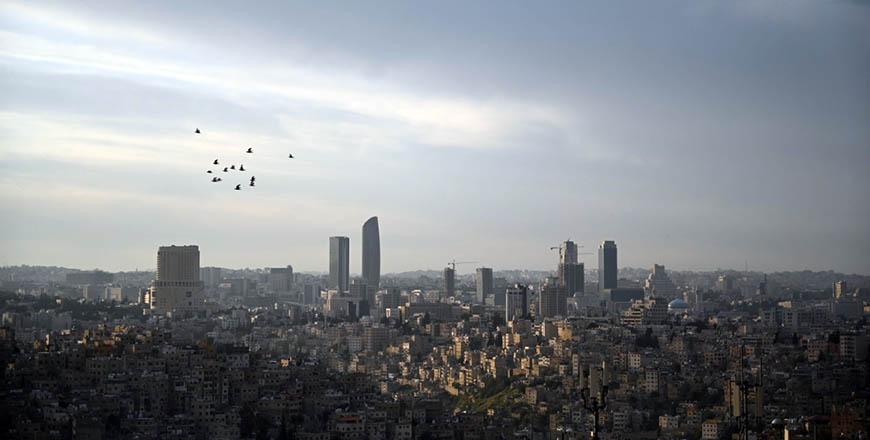You are here
Online panel discussion held on pandemic impact
By Maria Weldali - Dec 31,2020 - Last updated at Dec 31,2020
AMMAN — The Arab Renaissance for Democracy and Development (ARDD) organisation held an online panel discussion on Tuesday, titled “The Impact of the Coronavirus Pandemic in the Arab Region”, shedding light on the Arab scene in a post-pandemic world.
The session’s moderator and Chairman of ARDD’s Board of Trustees Zaid Eyadat started the session by pointing out that a number of crises take hold of the Arab world, the most serious of which are "the moral crisis" governing the general behaviour of the people, followed by an “intractable identity crisis”, and the social, political and security crises.
"The entire world is facing this pandemic but its impact on various regions and countries is different,” panellist and Egyptian thinker Hassan Nafaa, who is a member of ARDD’s Board of Trustees, said during the online session.
Furthermore, Nafaa classified the Arab countries into three categories: Countries that are politically stable and economically strong, represented by the Gulf countries which have “relatively better” health systems, who were therefore able to respond promptly.
The second category included middle income and overpopulated countries, with limited resources to respond to an unprecedented pandemic, according to Nafaa who also expressed that “those countries, one way or another, were able to face the crisis, but at the expense of political freedoms,”
The levels of spread and severity of the pandemic in countries with armed-conflicts are low, due to being isolated to a certain extent, “but there is no doubt that poverty and unemployment increased in there,” according to Nafaa.
“This pandemic is for sure an unprecedented issue,” Ali Oumlil who is a Moroccan thinker and activist said during ARDD’s session. Adding that throughout history, the world witnessed many pandemic outbreaks, but this is the first in time of globalisation.
Oumlil pointed out that the COVID-19 crisis has revealed many deficiencies whether in the development paradigm, the educational and health systems, or the distribution of opportunities among the citizens of the Arab states.
Former minister of state for economic affairs Yusuf Mansour said that the most affected were the vulnerable societies, whether refugees, expatriate workers or daily labourers who are typically not included in official statistics, leaving numbers “significantly better” than they actually are.
Among the session’s panellists was Mauritanian scholar Abdulla Weld Abah who described the performance of the Arab states in addressing the pandemic as “generally OK”.
Related Articles
AMMAN — The Arab Renaissance for Democracy and Development (ARDD) on Wednesday held a virtual dialogue session on the sustainability of soci
AMMAN — The Arab Renaissance For Democracy And Development (ARDD) on Thursday held a virtual dialogue session that discussed the rapid impac
AMMAN — The Arab Renaissance for Democracy and Development (ARDD) on Wednesday held a virtual dialogue session on the future of the Arab wor
















